Dr. Dan Richman, MD Speaks about Tai Chi and Pain Management
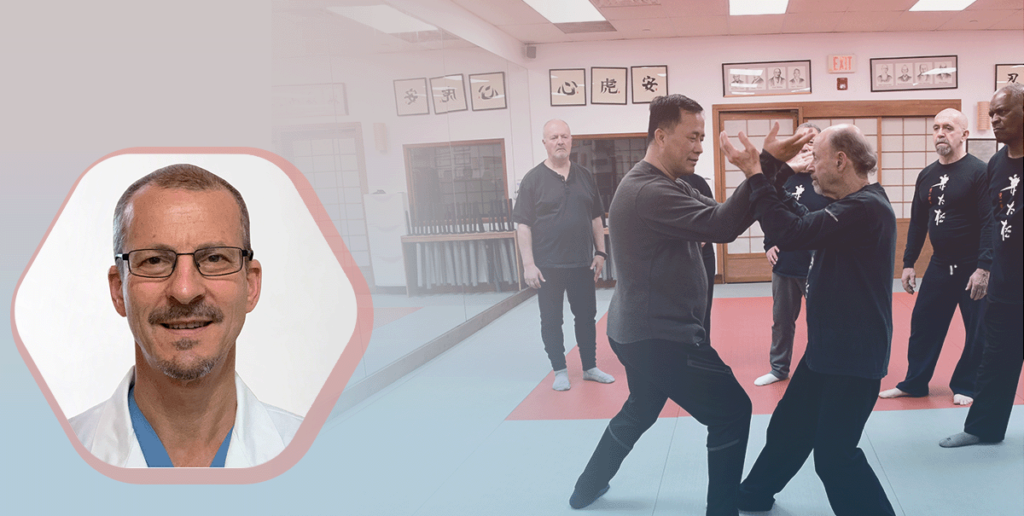
Transcript edited for clarity.
Alan: Can you tell me a little bit about yourself and what you do here?
Dr. Dan: I’m a pain management specialist, anesthesiologist and I’ve been working for close to 30 years here at the hospital for special surgery, which is the preeminent orthopedic hospital in the country, specializing in orthopedic pain problems, spine problems, nerve pain problems, and I work full-time in this. This is what I do. I am an anesthesiologist by trade but also don’t practice anesthesia anymore, just pain management.
Alan: And one of the reasons we’re here is I’m just curious as to how you came about working with Grandmaster Ren and learning about Tai Chi. Did you have an interest in martial arts before or in Tai Chi?
Dr. Dan: I never had any interest in martial arts. I knew nothing about them and they didn’t interest me. I always exercised. I loved to run, a little bit of weight lifting, played basketball, and I loved playing sports. As I got older and realized I couldn’t play competitive sports anymore at the level I was used to, I started just exercising at the gym, and it was a mindless activity that got my day going. And I ski, and I started windsurfing in the mid-90’s. Suddenly, I woke up one morning with pain on the right side of my neck going into my shoulder. I was a little upset at myself. One, because I didn’t know how it happened, and two because how could I be one of my patients. I was in agony one day and I didn’t know what to do. I put on a cervical collar and came to work, and one of my patients I was about to do an injection on, says “I’m not going to have you inject me if you have a collar on your neck.” And it so happens that that patient was one of Master Ren’s students. And he said to me, you should try Tai Chi, and that was the beginning of it. Now, it just so happened that a month or two before that, my brother who had just started working with Lou Reed in helping him get his internet presence going, had taken me to a concert of his at Carnegie Hall where I had seen Master Ren perform onstage, and I didn’t know what it was. I’d never seen Tai Chi before, but I asked that patient of mine, “is that the teacher that you have, Master Ren, who works with Lou Reed,” and he replied that was his teacher. I don’t remember if Lou introduced him to Master Ren or vice verrsa, but they had that connection. That was the beginning. I went on a windsurfing trip to Aruba, and my pain got particularly bad during that trip, and when I came back, I told my wife I’m going to start doing Tai Chi. It’s time I try this. I went to the first day of class and I was intrigued. I didn’t understand it but I was patient and willing to proceed with it.
Alan: And what were the results?
Dr. Dan: Initially not much because I didn’t know what to do, where to put my hands. I was in class with 20 or 30 other people. It was busy; it was Sunday morning. I got a little bit of attention from Master Ren. But I plowed forward and eventually I started noticing some relief about 2 months into it. I started noticing a little bit of benefit. In fact, I was visiting a friend of mine in Pittsburgh who is a neurosurgeon, and I was doing Tai Chi in his backyard, but I was visiting him to see his partner about a disc replacement in my neck. I was going to have a big operation, and at that point, I was taking pain medication almost every day; nothing strong but requiring it every day. I started doing Tai Chi in his backyard, and the pain diminished. And he looked at me and said, “Well, I’m going to introduce you to my partner to discuss the surgery, but really we are just going to go out for a drink. You don’t need to have this surgery.” And that was only 2 months into it. But it was inconsistent and I really didn’t know what I was doing, and then 6 months into it, Master Ren asked me if I would like to try private lessons. That’s the beginning of the real relief, the power and understanding of what it could do for my pain. So of course I had to recommend it to my patients soon after.
Alan: So do you recommend Tai Chi to certain patients?
Dr. Dan: Yes, to the ones I think can put the time and energy into it. Once they are convinced that it’s not a passive type of treatment, that they have to work hard at it, and if they are willing to do that, almost all of them have gotten some type of relief and benefit if they keep up with it.
Alan: Are there any types of pain relief they get versus other types you’ve encountered?
Dr. Dan: I mostly recommend it to patients with neck and low back pain, and not so much with arthritis because it can be painful to do some of the deeper forms if you have arthritis in your ankles and your knees. So it’s mostly for people with back problems.
Alan: What do you think of the Silk Reeling exercises? Do they have any benefits?
Dr. Dan: I can speak personally that I couldn’t imagine doing anything after the Silk Reeling without doing the Silk Reeling first. It’s an important warm-up exercise, and an important way of adjusting your energy, yin yang, and I have patients who have studied with Ren who’ve never even gotten past Silk Reeling because it’s so beneficial. They are not interested in martial arts. They don’t want to do any kicks or punches, and I get that. That’s the beauty of Ren’s Tai Chi. It’s so flexible. It’s not just a martial arts exercise. It’s stretching, it’s relaxation, but it’s more of an energy thing. It’s not easy to understand, but there are some who think in the pain management world, that if you exercise your muscles in specific ways, particularly in the legs for balance and power, that it releases an endogenous chemical that gives you pain relief. We don’t know for sure, but that is something I am going to be interested in studying, and I’m wondering if that is the effect of Tai Chi.
Alan: Have you found any benefits to Standing Mountain meditation or things of that nature?
Dr. Dan: I used to meditate when I was in college and I don’t do meditation anymore. When I’m doing Standing Mountain, it’s part of the beginning of Silk Reeling for me. So I do Standing Mountain every morning for at least 5-10 minutes, until I feel enough pain in my thighs, and sweat across my brow. That’s when I know I’ve done enough Standing Mountain. But it is an incredible exercise to relax the mind, relax the shoulders, and the neck, and make the legs strong.
Alan: I’ve heard Master Ren refer to getting into the right posture and right alignment as Tai Chi vacation.
Dr. Dan: Yes. Well, Master Ren often says, “feel, let your body feel it; feel the good that you are bringing to yourself in your body.” I’m sure there are better words in Mandarin to explain that. I’m fascinated by his understanding of the human body and energy, and I believe it’s his training as a martial artist to be able to look at somebody and see their strong points and their weak points, and he uses that in a therapeutic way with Tai Chi.
Alan: How would you describe his teaching technique and his approach to the student?
Dr. Dan: I’m 60-years old and I’ve taken guitar lessons a lot of my life. I’ve taken ski lessons, I’ve done this, I’ve done that. I’ve worked under doctors as mentors and I’ve never had a teacher in anything that’s as engaged as Master Ren is in the success of what he does. In fact, I’ve sent him patients who certainly have the wherewithal to Tai Chi lessons privately, and he fires them. He stops it if they don’t have shen, that is putting their whole heart and soul into it. That’s so important and he can tell whether you are practicing or not, and he can tell whether you are truly engaged. His enthusiasm for Tai Chi is so infectious that you can see it in his class, and with his other private students. It’s not such a private club, like some secret club. Everybody can do it, anybody can do it, and he can teach it to anybody. As a teacher, he’s one of the best teachers I’ve ever had, and one of my doctor colleagues that goes to him at my request also says the same thing. Look, Lou Reed took lessons with him everyday. And if I could, I would too. (laughing)
Alan: If you have a patient who comes to you with neck pain, how do you explain not referring them to another doctor, but to a Tai Chi teacher?
Dr. Dan: I usually can manage all neck pain short of surgery. I can do any kind of injection, recommend any kind of therapy, chiropractic treatment, physical therapy, and those are all fine when you are in acute pain, and need to get out of that really bad place. But once you are out of it, and what to prevent it from happening again, what are you going to do? How are you going to change your life, or as Ren puts it, how are you going to change your energy? What I say to patients is once you get out of that acute stage, and you are up and around, you are not going back to the same activity that landed you in my office in the first place. You’ve got to make changes in your life – in your body habits, in your posture, and how you do things. If you want to play golf, let’s go over your swing and your form. Tai Chi is the perfect way to do that. I tell patients that I’m going to recommend to you a whole body exercise. It’s not Pilates or an exercise that isolates specific areas of the body. And I always say to them, please suspend your disbelief and give it time to go forward. And if they do that, almost all of them never come back to me for injections. That’s how powerful it is.
Alan: What would you say to people, that are not your patients — what is this Tai Chi stuff, and why would I do it?
Dr. Dan: It’s not as easy to sell as yoga, I have to tell you, and I don’t recommend yoga to anybody because yoga brings me more patients than anything else, from people twisting in the wrong way. The thing about Tai Chi is that you can’t do it the wrong way. If you are doing it, you are doing it the right way which means you’re not going to hurt yourself. To me, it’s so inherently safer for people particularly with lower back problems. That right there should be enough to get you into it, but because it’s a martial art and most people don’t have an interest in martial arts, they shy away from it. But then I explain to them yoga was originally a martial art. It’s morphed itself into what it is now. Tai Chi is the type of exercise that gives you strong legs, and if you have more balance on one leg than most people have on two, then your spine is going to be fine. Because whatever it takes to get there is good for your spine. In this culture that we live in where people like to do Pilates, or like to go to the gym and lift weights, there is a certain mystique with those exercises — I’m trying to move that mystique over to Tai Chi. That’s my life goal actually as a doctor. (laughing) Because I think those exercises are fine but they are going to cause more injuries than help, whereas with this you’ll get exercise, you’ll have fun, you’ll be getting a workout, and you’ll be doing something good for your pain.
About the Author: Alan Bandes has been teaching Chen Style Tai Chi for over 2 decades while studying under Master Ren Guangyi. He teaches in-person, and as an instructor for Chi Force Community where he offers live-streamed classes.


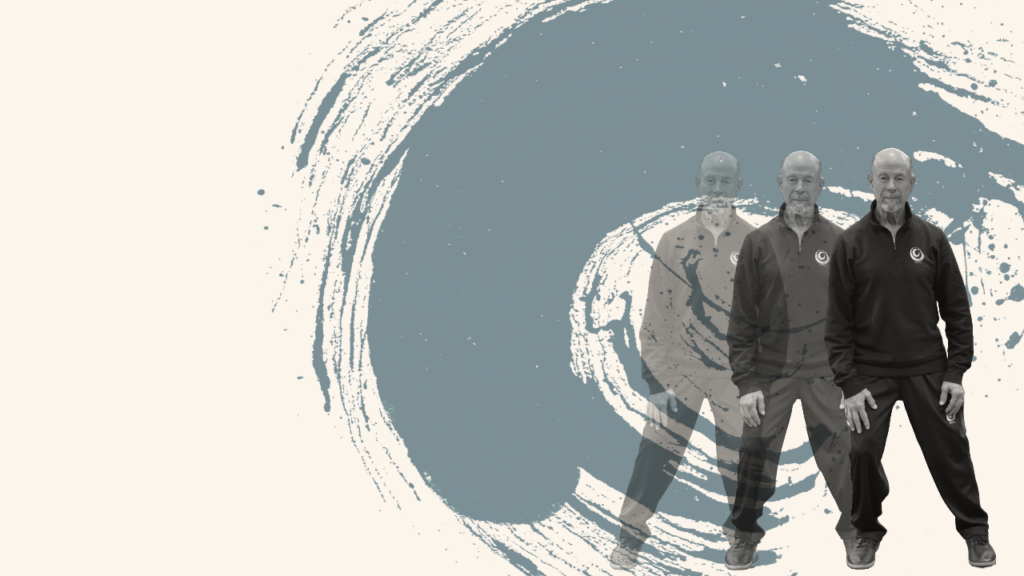
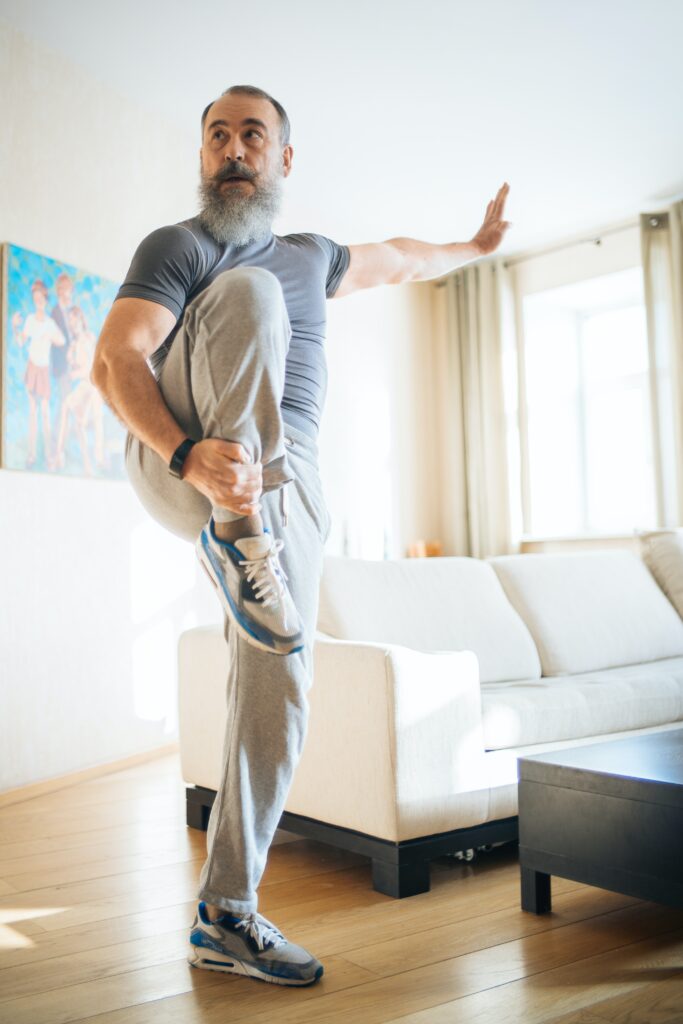
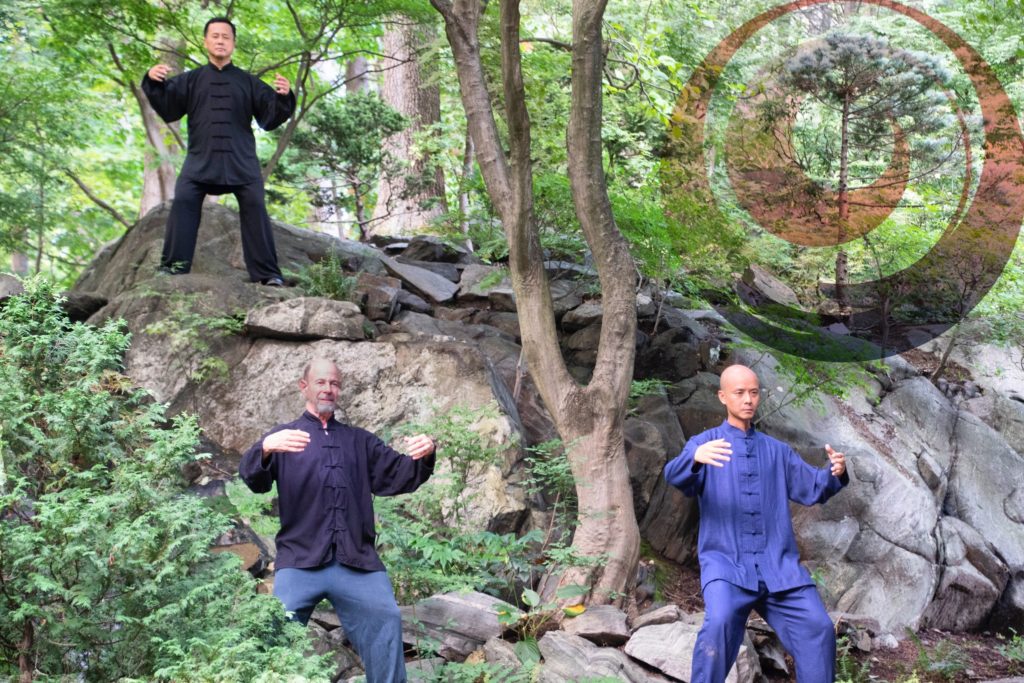
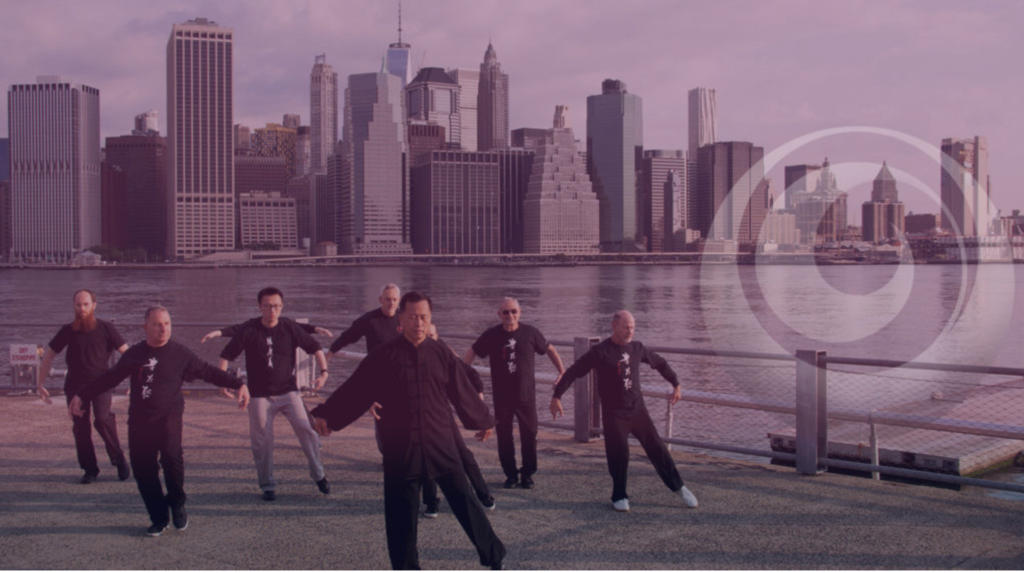
Responses